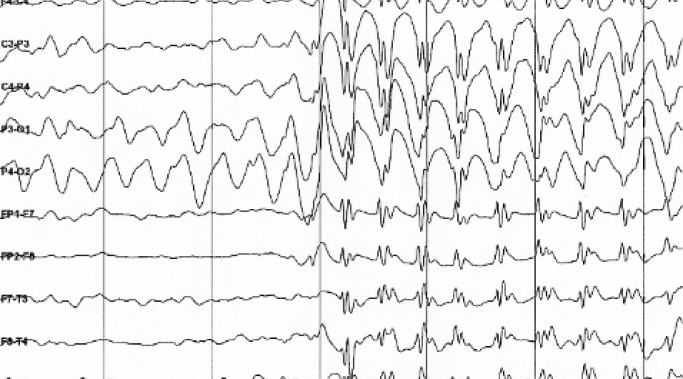Recently, someone wrote me and asked how to best handle a first psychiatric appointment. This is a good question because, essentially, people are walking into the vast unknown. If you’ve never seen a psychiatrist before, how could you possibly know what to expect? And, the kicker of that is, the doctor will be asking you why you’re there. So you’re supposed to know what to say when he says that. So how do you handle your first psychiatric appointment?
Bipolar Diagnosis
There are a significant number of people diagnosed with depression who don’t get better because they actually have bipolar disorder and have been misdiagnosed or have a mild form of bipolar. I was one of those people. Luckily for me, it only took about 6-9 months to correct the misdiagnosis but for many people, it takes much, much longer. Many people sit with a misdiagnosis of depression for, literally, years. And what doctors (and patients) should be thinking about is if a patient has been diagnosed with depression but isn’t getting better, does he or she really have mild bipolar disorder?
Sometimes I ask for advice, but pretty much never about my bipolar disorder. (Unless you include my doctor. Him I tend to listen to.) This is because the people around me don’t have the expertise or experience to advise me about a mental illness. It’s not personal, I’m just not friends with any psychiatrists. But what really ticks me off, is unsolicited advice about bipolar disorder (particularly from people who act like experts but are not, in any way, qualified to do so).
When I think about depression I think of crushing sadness. I think of heavy, devastating sadness that will not move or shift for anything. I think of a sadness that penetrates your bones and makes life feel like it’s not worth living. I definitely identify sadness with depression.
But is depression really just profound sadness?
Bipolar disorder has the simultaneous problem of being both underdiagnosed and overdiagnosed. While there’s little literature on overdiagnosis, what is clear is that the right people aren’t getting the right diagnosis all of the time. And while no one wants a false positive when diagnosing a mental illness, it’s also absolutely imperative that a diagnosis of bipolar disorder not be missed.
And unfortunately, all too often, bipolar disorder is misdiagnosed as Dr. Prakash Masand, CEO and Founder of Global Medical Education, says, "Missing the diagnosis of bipolar illness is all too common in clinical practice with devastating consequences for patients and families."
It’s time to dispel another myth that ticks me right off. This particular myth is that mental illness is but a symptom of childhood abuse. People who think this claim that simply by getting therapy and dealing with this abuse, the mental illness symptoms will go away. Bipolar – cured! Yay!
This, of course, is absolute nonsense.
I’ve been working on coming up with mission and vision statements for a charity I work with, and one of the things that a fellow board member said was that we want to end self-discrimination. I thought this was quite brilliant, and, of course, quite true. One of the things people with a mental illness face isn’t just discrimination from others but discrimination and stigma from themselves. And if we want to fight discrimination and stigma in the world, this begins by looking in the mirror.
Bipolar disorder and borderline personality disorder have crossover traits and so a person with bipolar disorder can often mistakenly be diagnosed with borderline personality disorder. In fact, some feel that diagnosis with both disorders is inappropriate unless the patient’s bipolar disorder is in remission.
But some people do meet the diagnostic criteria for bipolar disorder and borderline personality disorder. I would have put this number much lower than it actually is thought to be. From the research I’ve done, it appears that borderline personality disorder is comorbid to bipolar in around 40% of cases. This is particularly surprising as it was once thought that personality disorders were only comorbid to bipolar in 12% of cases or less.
But what is borderline personality disorder and what does it mean if you’re diagnosed with both bipolar and borderline personality disorder?
In bipolar disorder comorbid conditions (conditions that occur alongside the bipolar disorder) are more the rule than the exception. In the video I discuss the psychiatric and non-psychiatric conditions that commonly occur alongside bipolar disorder.
Recently, it was announced that the very first diagnostic brain scan for a mental illness became Food and Drug Administration-approved. This test uses electroencephalography (EEG) to diagnose attention-deficit/hyperactivity disorder (ADHD). Finally, people with a mental illness (in this case ADHD) can point to a biological test and say, look – see – my disorder is biological in nature and we can test for it.
It’s not terribly surprising that ADHD is the first disorder to have this type of test as we understand an ADHD brain better than we understand a brain with other disorders. Nevertheless, it won’t be the last. Scientists are actively working on diagnostic tests for depression, autism, bipolar and schizophrenia too.
And while I consider this a major breakthrough in our real, tangible understanding of mental illness, there are reasons why diagnosis by brain scans matters and reasons why it doesn’t.









